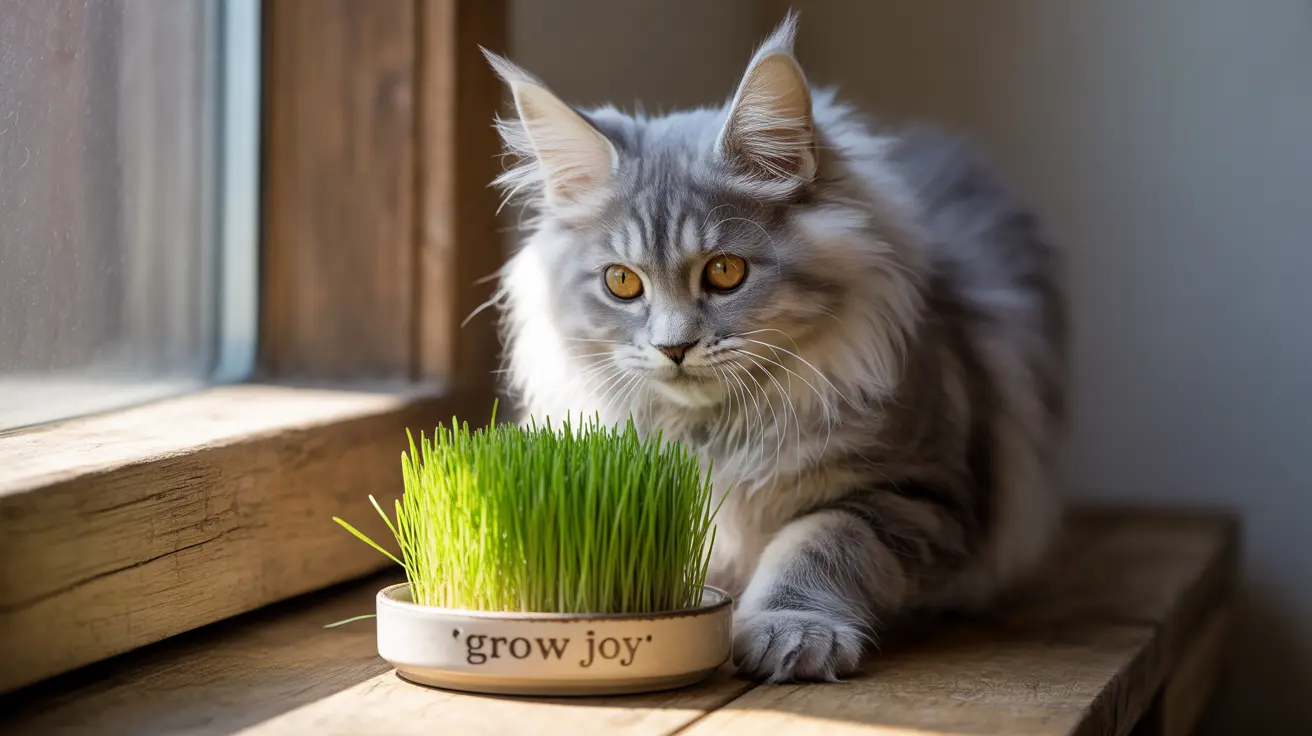Growing cat grass without soil has become increasingly popular among pet parents seeking a cleaner, more convenient way to provide their feline friends with this nutritious treat. This comprehensive guide will walk you through everything you need to know about soil-free cat grass cultivation, from selecting materials to maintaining healthy growth.
Whether you're dealing with limited space, want to avoid messy soil, or simply prefer a more modern approach to growing cat grass, soil-free methods offer numerous advantages. Let's explore how you can easily grow fresh, healthy cat grass using alternative growing mediums.
Understanding Soil-Free Cat Grass Basics
Cat grass, typically grown from wheat, barley, oat, or rye seeds, provides essential nutrients and aids in digestion for indoor cats. Growing it without soil not only eliminates mess but also reduces the risk of mold and bacterial growth commonly associated with traditional soil-based methods.
The soil-free approach uses various growing mediums such as hydroponics, grow stones, or coconut coir to support seed germination and growth. These methods often result in faster growth and cleaner maintenance compared to conventional soil cultivation.
Essential Materials for Soil-Free Growing
Before starting your soil-free cat grass project, gather these necessary supplies:
- Cat grass seeds (wheat, barley, oat, or rye)
- Growing medium (pebbles, grow stones, or coconut coir)
- Shallow container with drainage holes
- Paper towel or unbleached coffee filter
- Spray bottle
- Filtered or distilled water
Step-by-Step Growing Process
1. Seed Preparation
Start by soaking your chosen cat grass seeds in filtered water for 8-12 hours. This process helps kickstart germination and increases success rates.
2. Setting Up Your Growing Container
Fill your container about two-thirds full with your chosen growing medium. Layer a paper towel or coffee filter on top to create a stable surface for the seeds.
3. Planting and Initial Care
Spread the pre-soaked seeds evenly across the paper layer. Add water until it just reaches the seed level, being careful not to flood them. Place the container in an area with indirect sunlight.
Maintenance and Care Tips
Successful soil-free cat grass requires consistent but minimal maintenance:
- Mist seeds daily to maintain moisture
- Keep the container in moderate indirect light
- Monitor water levels to prevent oversaturation
- Remove any seeds showing signs of mold
- Harvest grass when it reaches 4-6 inches in height
Benefits of Soil-Free Growing Methods
Growing cat grass without soil offers several advantages:
- Cleaner growing environment
- Reduced risk of pest infestations
- Faster germination and growth
- Easier maintenance and monitoring
- Perfect for small spaces
- Less mess and cleanup required
Frequently Asked Questions
How do I grow cat grass indoors without using soil?
Use alternative growing mediums like grow stones or coconut coir, place pre-soaked seeds on a paper towel layer, and maintain proper moisture levels in a container with indirect sunlight.
What materials do I need to grow cat grass without soil at home?
You'll need cat grass seeds, a growing medium (pebbles or grow stones), a shallow container, paper towel or coffee filter, spray bottle, and filtered water.
How long does it take for soil-free cat grass seeds to sprout and be ready for my cat?
Seeds typically sprout within 2-4 days, with grass ready for cat consumption in 7-10 days, depending on growing conditions.
What are the benefits of growing cat grass without soil compared to traditional soil methods?
Soil-free growing offers cleaner maintenance, reduced mold risk, faster growth, and easier monitoring of moisture levels, with less mess overall.
How can I prevent mold and keep my soilless cat grass healthy during growth?
Maintain proper air circulation, avoid overwatering, remove any affected seeds promptly, and keep the growing container clean between cycles.
Conclusion
Growing cat grass without soil is an efficient, clean, and modern approach to providing your feline friend with fresh, nutritious greens. By following these guidelines and maintaining proper care, you can successfully grow healthy cat grass in any indoor space. Remember to start new batches regularly to ensure a continuous supply for your pet.






